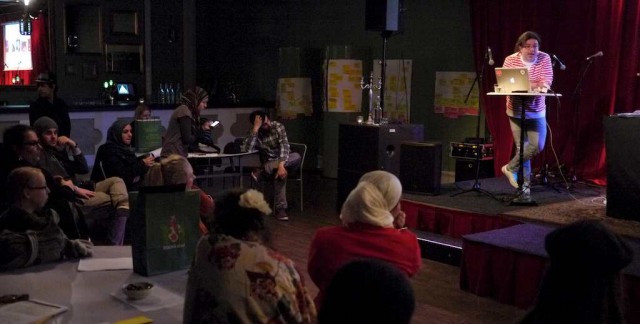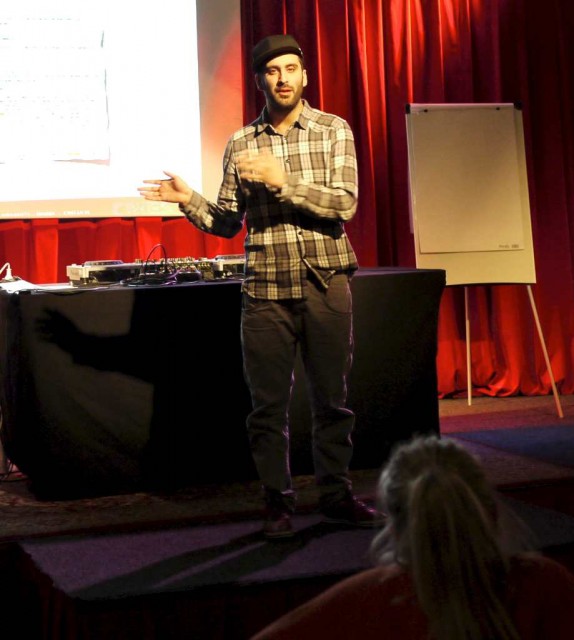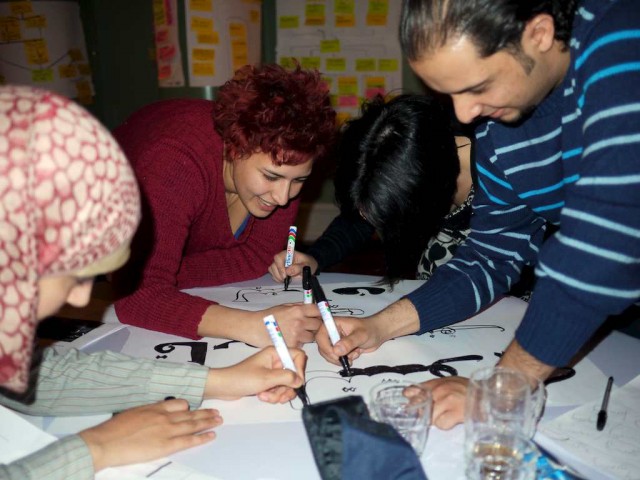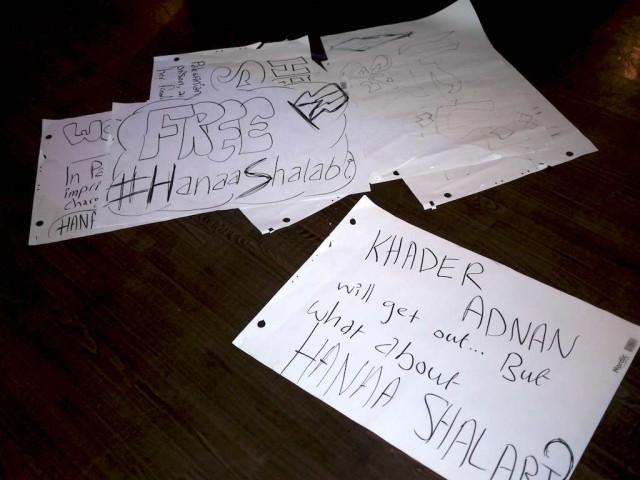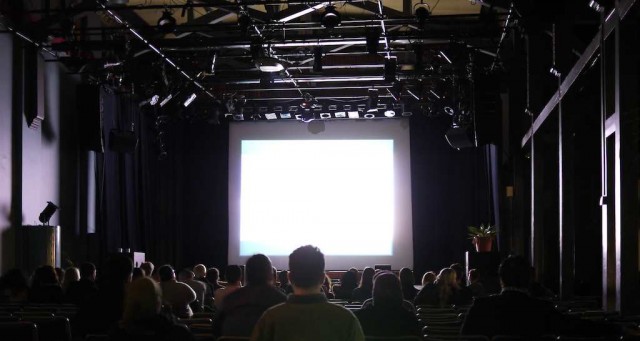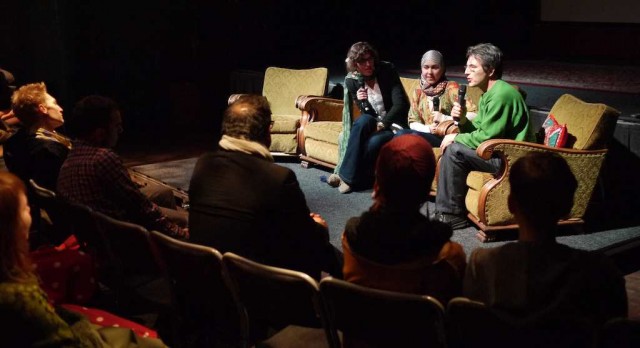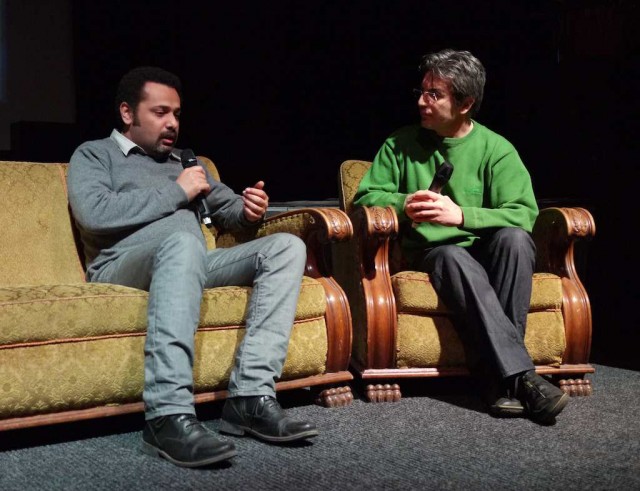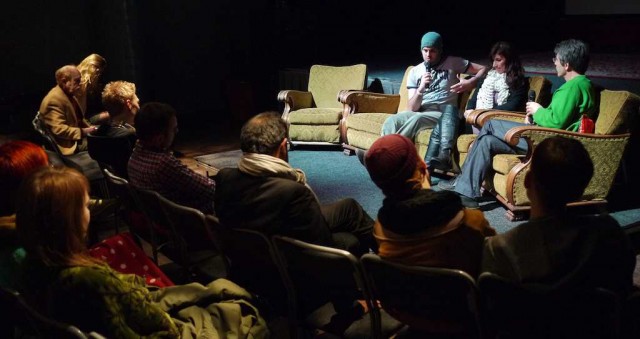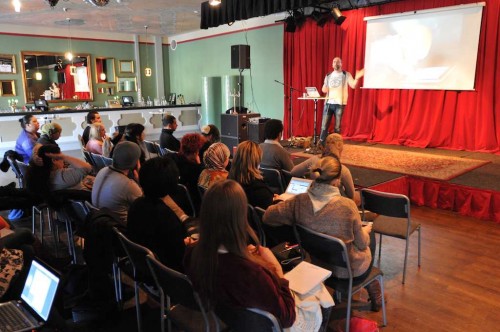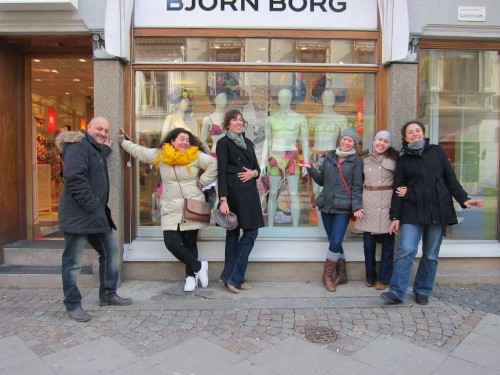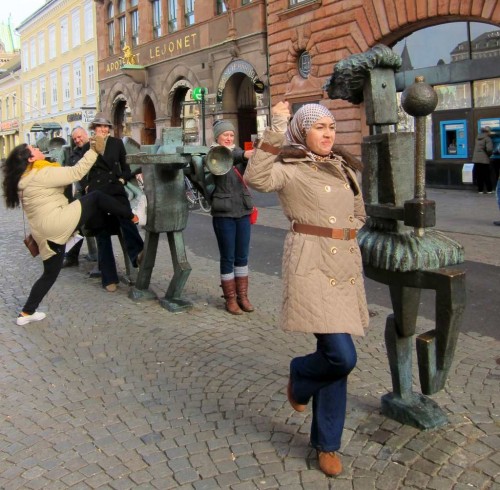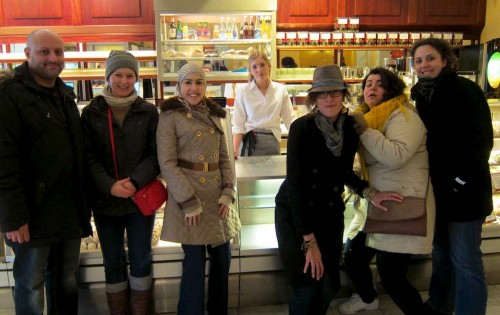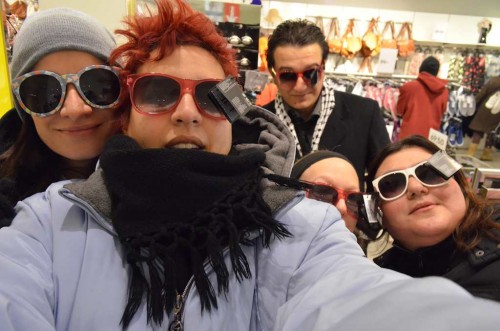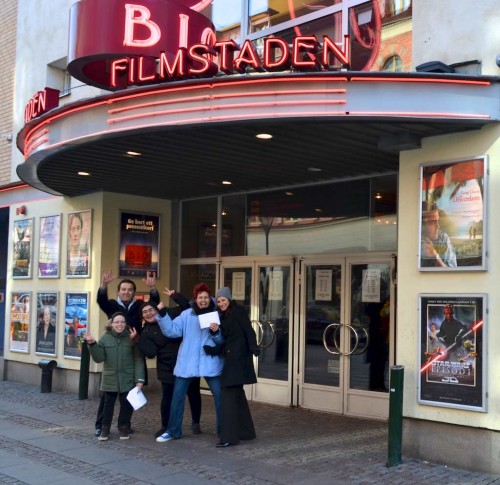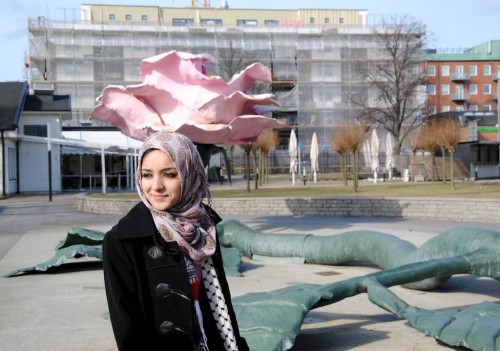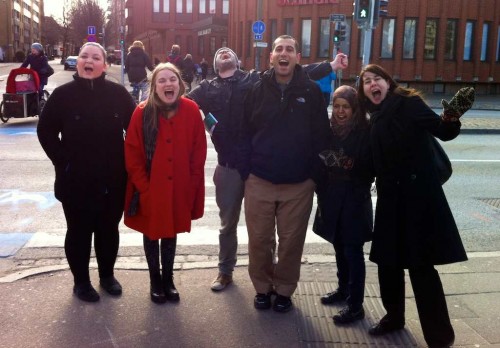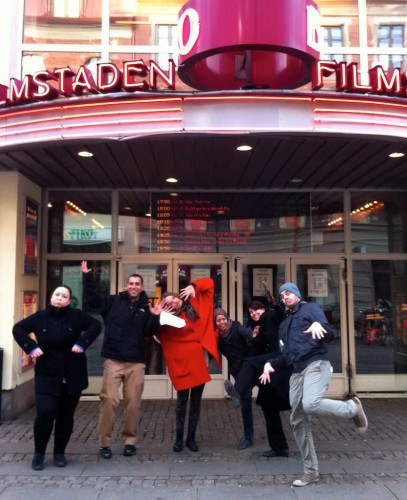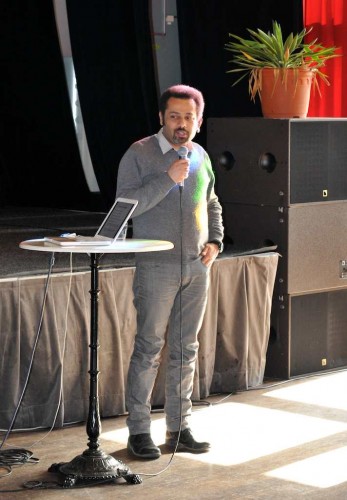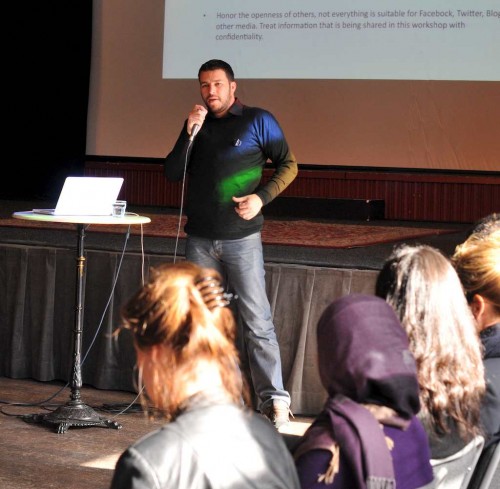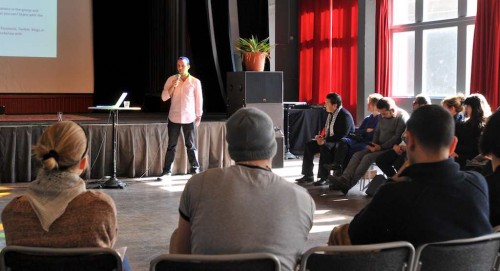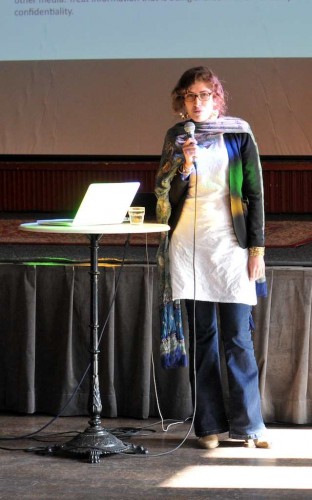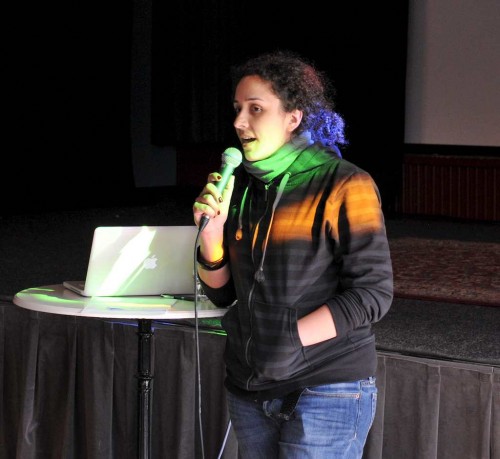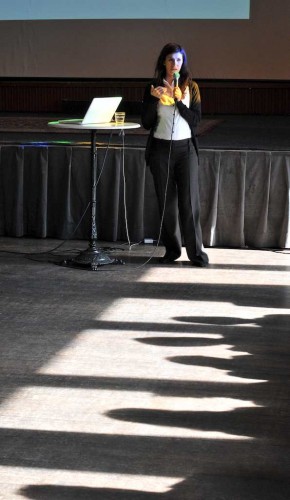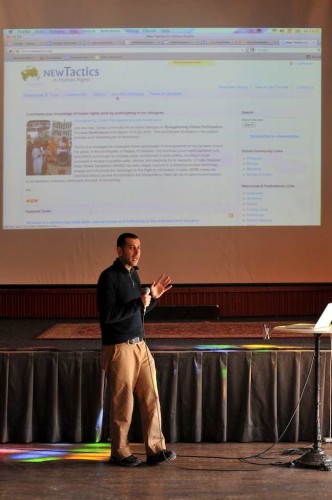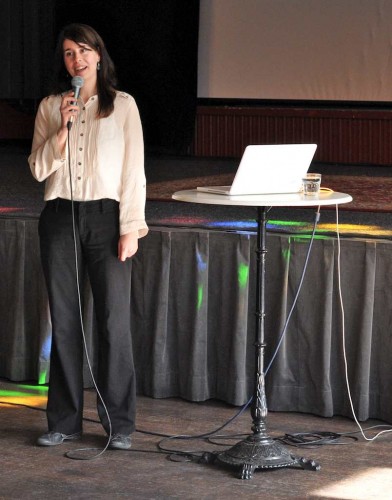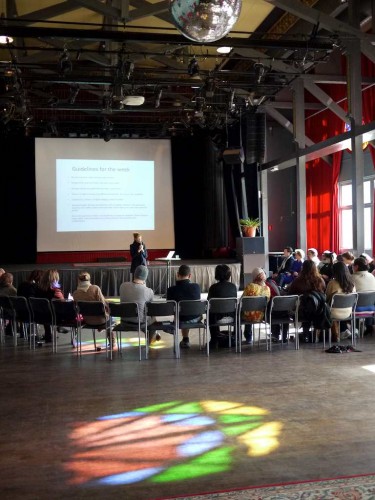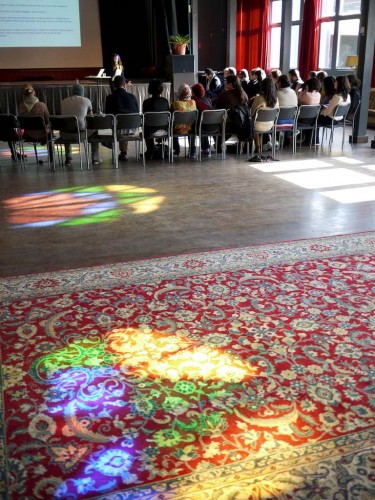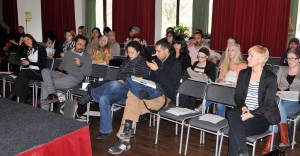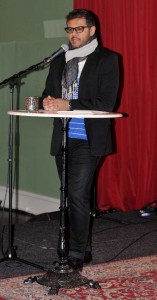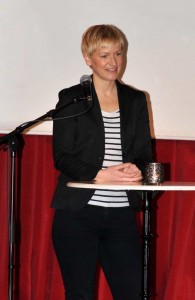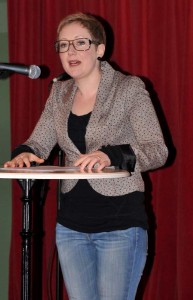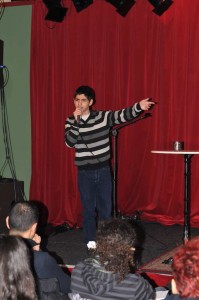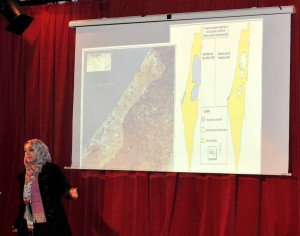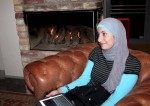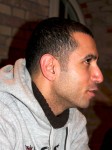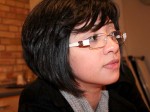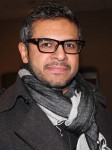After a long day spent plotting to save the world through democratic change, DXF participants were treated to a hip-hop themed evening.
First, Anders Ackfeldt — who is doing a PhD on Islamic themes in hip-hop music at the Center for Theology and Religious Studies at Lund University — explored the similarities between Islam and hip-hop. Hip-hop has a long history of giving voice to the voiceless and oppressed, and Anders explored how hip-hop has taken up this role again in the Middle East and Northern Africa, most recently in the context of the Arab Spring.
Then it was time for some participatory rapping. The multi-talented Swedish Grammy award-winning hip-hop artist and Malmö native Behrang Miri provided DXF participants with a crash course in writing and performing rap.
The enthusiasm was infectious, and the DXF crew was soon putting on a talented performance:
Here’s how those rap songs were written:
Behrang Miri’s and his protégé, the very talented 14-year old Dushan, also engaged in a collaboration, with Behrang as a human beat box:
Quite by coincidence, visiting Moriska Paviljon at the time was the Buenos Aires hip-hop star Miss Colombia, and they were drawn to all the full throated rap being sung by DXFers. She and her sidekick also ended up performing. Here they are by themselves:
And here they are in a collaboration with Behrang:
Still, that was not the end of the evening. Many at DXF were motivated to attend a late-night vigil in support of Hana’a Shalabi, a palestinian activist in Israeli administrative detention who is in the third week of a hunger strike:

